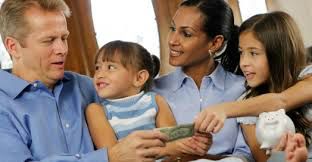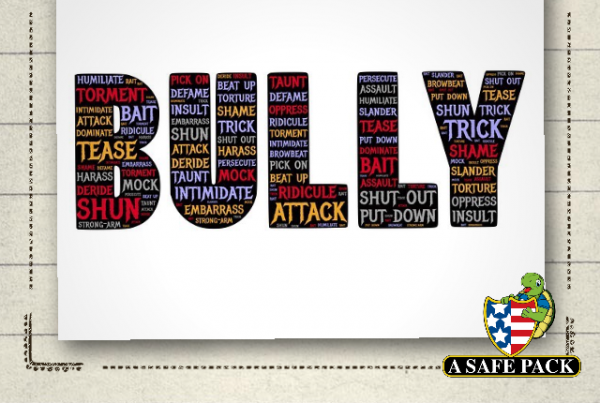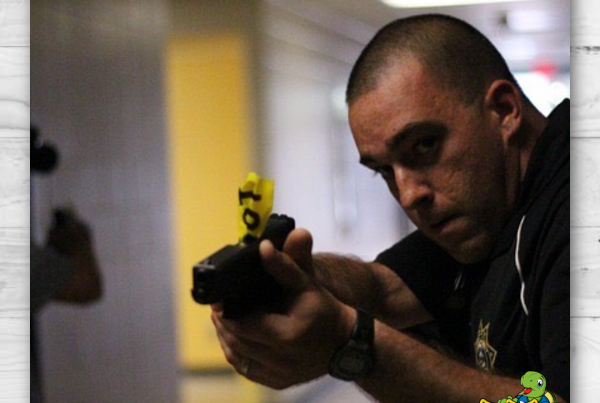
Acts of school violence can scare and confuse a child who should feel safe in their educational situation, and they naturally seek adults for guidance, protection, and information. Because we live in a global society where news is instantaneous, children can often find out about an act of school violence before their parents. With that said, parents must be prepared to discuss the tragic event with their children in an appropriate manner. Parents can help to alleviate fears through normalcy and initiate an open discussion with their children about their feelings.
Mental Health experts suggest the following, before and after any act of school violence:
- Encourage the child to discuss their feelings and fears.
Many times, children are slow to initiate a conversation, therefore, the parent may begin by asking how their day was, and if they feel safe at school. Remember to use vocabulary that the child will understand because a young child might not understand the word violence, but certainly knows if someone is mean to them. The parent may recount a school story of their youth, talking about a bully or a classmate that was not nice, therefore, making the child more comfortable in telling their own story.
Reassure the child that schools are safe, while validating their emotions of fear and confusion. Aid them in putting their feelings into perspective and help them to express their emotions. Allow them to ask questions, and most importantly, BE PATIENT. In this case, patience is a virtue, and will benefit both child and parent.
Some children may be more comfortable conveying their feelings in an essay or poem, or even in a drawing or painting. They may want to perform a play about their school activities or occurrences. Watch and listen closely, as many times, clues to their feelings or fears are hidden in the seemly harmless play between classmates in the yard.

- Empower the child to take personal action.
Condone reports of any types of school violence or mental health incidents such as shooting or suicide threats. Your child must feel safe in discussing such matters with you. Be an advocate of school safety programs and promote your child’s participation.
- Continue a normal routine.
Schedule regularity encourages mental and physical well-being. Children who get plenty of rest, exercise, and good nutrition are more mentally and physically prepared to face the world with confidence and problem solving skills. Maintaining a realistic extracurricular agenda prevents them from feeling overwhelmed.

- Discuss safety strategies that are already in place at their school as well as new game plans in the event of school violence.
Visitors generally must sign in at the main office and some doors remain locked while school is in session. Explain these school procedures to your child and help them to understand that these are precautions for the safety of all. Locate and identify trusted adults at the school to whom your child can turn to in the event of an emergency. This may be the school crossing guard, office secretary, and most definitely their teacher or principal.
Allow the child the freedom to contact you or another family member at any time during the day when they feel threatened. Open channels of communication, without fear is key to developing trust between your child, the school, and you, the parent.
- Talk openly about your own feelings with your child and validate their fears.
Children should understand that your concern is for their safety, that everyone has fears, and that they will have total support in dealing with their fears. Never minimize their emotions and stress that acts of violence are few and far between, hence the massive media attention when there is an occurrence. A school should feel safe to a child, both mentally and physically.
- Identify uncharacteristic behavior as an indicator of your child’s fear of returning to school following an act of violence.
Small children may react to school violence differently than older children. A young child may show reluctance to return to school whereas older children may internalize their fears by becoming withdrawn or argumentative. With any age, the parent may see a decline in school performance in the form of poor grades or failure to participate in school activities. They may show signs of anxiety, a loss of appetite, or poor sleep patterns. Most of these behaviors decline with time, but it is never too early to contact a mental health professional if there is concern.

- Continue open discussions with your child about school violence.
The dinner table or a ride in a car are perfect situations to have non-confrontational discussions with your child about school safety. This should be commonplace and not just in response to an actual event. Maintaining constant open dialogues encouraging children to discuss topics of their choice are never a bad idea, and incidences for these types of discussion should be common-place.
- Limit news and social media exposure.
During the tumultuous time of school violence events, it is a good idea to limit television and social media exposure, especially for younger children. Confusing or inaccurate information may surface causing anxiety in developmentally unprepared children. Parents and adults should be cognizant of conversations with and around children and limit their conversations that focus on hate or anger. Any derogatory comment may be misconstrued, leading to misunderstandings, which then must be addressed.
- Seek professional help at the first sign of uncharacteristic behavior.
It is never too early to contact a professional mental health counselor. In the event of school violence, the school will usually have a counselor at the school for your child to speak with during and after the school day. Make your child at easy, without fear of embarrassment or weakness, to visit the counselor and emphasize that the counselor is there for them and their safety.
DISCUSSION OF APPROPRIATE DEVELOPMENTAL LEVEL
Discussions should be developmentally appropriate depending upon the age of the child; experts suggest:
- Preschool:
At this stage of your child’s life, you have a great deal of control over what he or she hears. Take advantage of this by limiting discussion. If the child is acting normally, do not promote discussion about an incident the child knows nothing about. Of course, maintain an open stream of communication between you and your child, encouraging talk about anything that they bring up. Be aware of anything that they may hear that might be disturbing.
- Early Elementary School:
Simplicity is the key at this stage of development. Basic incident details are fine, and freedom to question should be promoted. Emphasis should be placed on the fact that schools are safe and that the adults are there to protect them. Remind them that safety patrols are in place, exterior doors are secured, and playgrounds are monitored.
- Upper Elementary and Early Middle School:
Children of this age begin to ask more questions concerning personal safety and want to know how their school is striving to make them safer. Parents will need to do rumor control for their child, separating fact from fiction as well as assure them that school and community leaders are working hard to make their school safe.

- Upper Middle and High School:
In this phase of the child’s life, they are becoming young adults and have strong opinions concerning school violence and safety. They will want to take part in security planning and open forums on school safety. At this point, the parent should have real conversations with their child asking, for example, “How do you feel about guns in schools?” and “How can we protect children in schools?” Allow the child to be a part of the solution before he or she becomes a part of the problem.
There are some key points to emphasize when talking to your children:
- School staff, police, community leaders, and parents all work for the safety of the school and the student.
- Tattling, gossiping and reporting all carry a different meaning; rumors should be discouraged, but reporting should be encouraged.
- There is a major difference between the possibility that something will happen and the probability that something will happen.
- Violence is an unwanted distraction to everyday life and is never the solution.
- People can do bad things to hurt others whether it involves, drugs, alcohol, or mental illness and these people need help.
- Guns and other weapons are dangerous and should only be handled by a trained adult.
- We all are responsible for school safety and all must work together to insure child safety.
- Finally, honor the victims while recognizing the heroes.
It is an important part of a parent’s job to help their child feel safe in a world that could change in the blink of an eye. The parent should never make a promise that they cannot keep, but they can assure the child that everything is being done to keep them safe.

References:
Carey, Benedict (2012). Tips for Talking to Children About the Elementary School Mass Shooting.Retrieved from https://www.nytimes.com/2012/12/15/health/tips-for-talking-to-children-about-the-elementary-school-mass-shooting.html
CBS News (2018). How to Talk to Children about School Violence. Retrieved from https://www.cbsnews.com/news/talking-to-children-about-school-violence/
Prouix, Natalie and Schulten, Katherine (2018). Resources for Talking and Teaching about the School Shootings in Florida. Retrieved from https://www.nytimes.com/2018/02/15/learning/lessons-plans/resources-for-talking-and-teaching-about-the-school-shooting-in-florida.html
Beers, Lee (2018). Talking to Kids about School Shootings. Retrieved from https://www.riseandshine.childrensnational.org/talking-to-kids-about-school-shootings/
American Psychological Association (2018). Talking to your Children about the Recent Spate of School Shootings. Retrieved from http://www.apa.org/topics/violence/school-shooting.aspx
Spector, Nicole (2018). What Mental Health Experts Say to their Kids about School Shootings. Retrieved from https://www.nbcnews.com/better/health/how-mental-health-experts-talk-their-kids-about-school-shootings-ncna845586
National Association of School Psychologists (2016). Talking to Children about Violence: Tips for Parents and Teachers. Retrieved from https://www.nasponline.org/resources-and-publications/resources/school-safety-and-crisis/talking-to-children-about-violence-tips-for-parents-and-teachers
MSNBC.com Staff and News Service Reports (2013). How to Talk to your Kids about the Shootings. Retrieved from https://www.nbcnews.com/id/15109195/ns/health-childrens_health/t/how-talk-your-kids-about-shootings/#.W1uzGdhKhBw
Photo Credits:
http://www.pbs.org/parents/education/going-to-school/talking-with-kids-about-school/
http://www.pbs.org/parents/education/reading-language/reading-milestones/first-grader-language-development-milestones/first-grader-talking/
http://www.parentsinspiringparents.com/talk-talk-talk-talk-more-to-your-children-and-less-on-your-phones/
https://catholicherald.org/special-sections/family/conversations-key-protecting-children-porn/
https://eilerspizza.wordpress.com/2017/05/23/talking-transgender-with-children/




